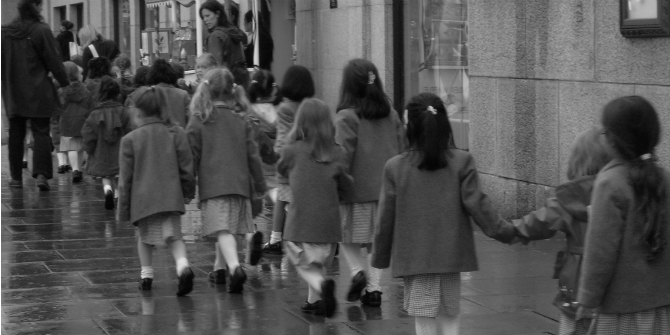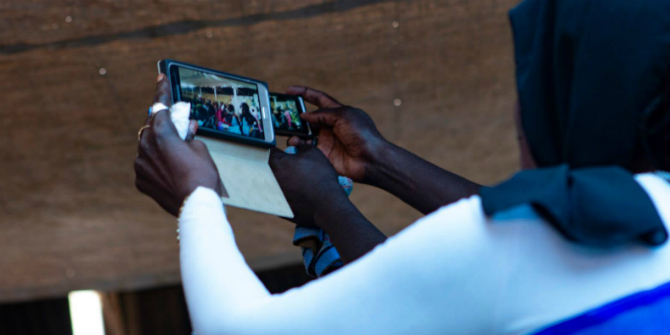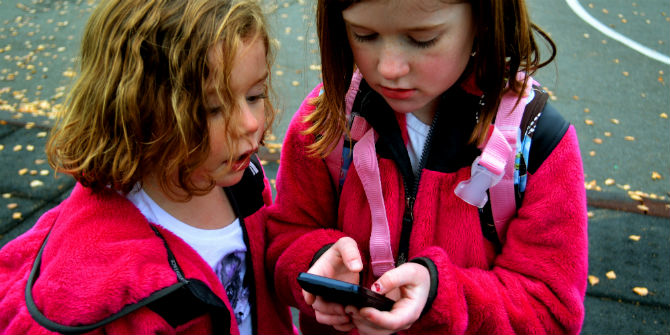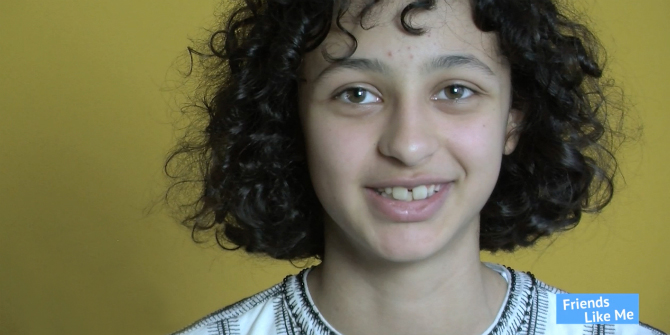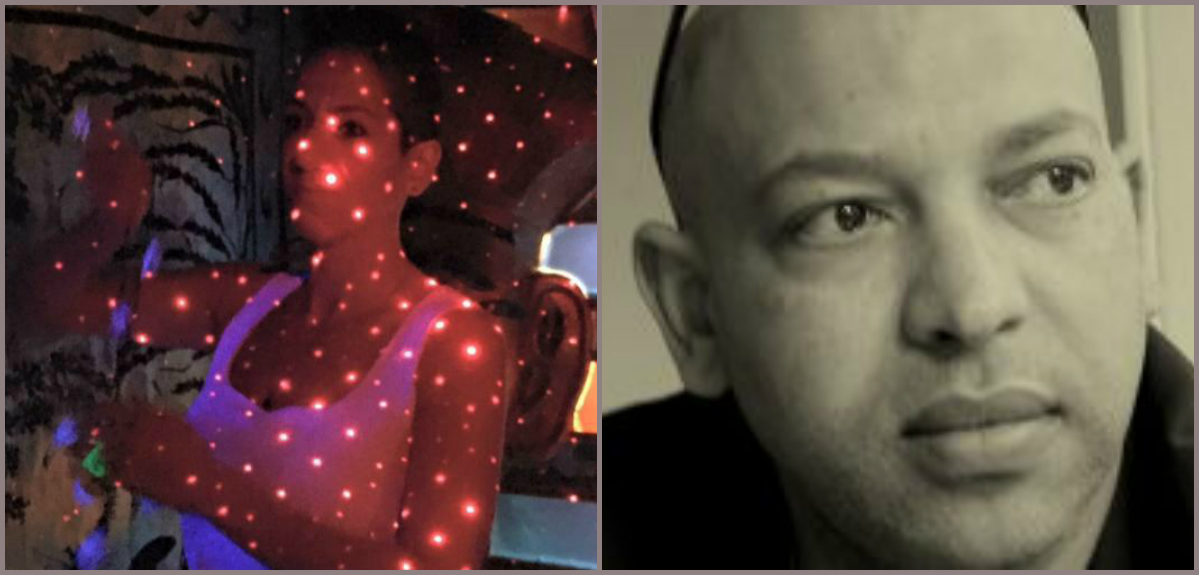 Tarik Sabry and Nisrine Mansour highlight findings from their ethnographic study of Arabic-speaking children in London. They investigate how these children navigate and negotiate the past and present contours of culture, family and their identity as Arabs and Londoners. Tarik is a reader in media and communication theory, and Nisrine is a researcher and documentary filmmaker, both at the Arab Media Center at the University of Westminster. [Header image credit: P. Herrera, CC BY-ND 2.0]
Tarik Sabry and Nisrine Mansour highlight findings from their ethnographic study of Arabic-speaking children in London. They investigate how these children navigate and negotiate the past and present contours of culture, family and their identity as Arabs and Londoners. Tarik is a reader in media and communication theory, and Nisrine is a researcher and documentary filmmaker, both at the Arab Media Center at the University of Westminster. [Header image credit: P. Herrera, CC BY-ND 2.0]
When carrying out ethnographic research with children and screen media, parents’ involvement not only informs, but also shapes, the research process. Parents decide on access to child respondents, and are key in mediating their children’s access to media and, subsequently, the rapport between the researcher and child. In our study we looked at how British children (aged between 7 and 12), of Moroccan and Lebanese origin, articulate their identities while navigating through their media worlds and relating to their parents and mediators’ cultures.1 We were interested in creating spaces for the children to express their connection with their environment within London and transnationally.
The relationship between researchers, parents and children
A three-way relationship between the diasporic researchers, parents and children developed within the site of the children’s ‘home’ in London. Parents initially displayed tacit mistrust as they intently sat in on the first few meetings with their children. Gradually, they loosened their involvement, while remaining omnipresent as a silent and seemingly distracted audience. In most instances, they were first-generation immigrants, attached to the cultural practices of their country of birth. They avidly engaged with Arabic-speaking global satellite TV channels on a daily basis, and spoke limited English, mingling primarily and almost exclusively with fellow diaspora members. We were able to relate to the parents through tracing our diasporic commonalities, an issue that the children did not closely associate with.
Cross-cutting connections
We sensed early on that the telling of life stories were mnemonically2 performed for us in a way that produced a coded language that we had to unpack carefully to understand cross-cutting connections with the children’s heritage and diasporic worlds. The children drew on their acquired memories to connect with their Arab heritage, primarily through family members’ visits and Skype chats, in addition to having friends from within the diasporic communities in London. In contrast, they physically related to London when narrating their daily lives – their native language was English, with only little understanding of Arabic, and their choice of music also reflected London’s urban and pop culture. Their Arabic music playlists were limited to patriotic songs and pop music, while their English music playlists were much longer and, regardless of their religiosity, the children were up to date with music trends, with an avid appetite for celebrity fandom.
The children navigated between their London environment and their parents’ diasporic cultures, revealing a habitus that came out of relations between (a) affective experiences (a sense of belonging that they enact and embody through popular culture such as music or TV shows), (b) performativity (where children selectively act in particular ways in relation to different actors – in this case, parents and researchers), and (c) their mnemonic imagination (acquired memories about their heritage country communicated to them by their parents, family and popular media). This allowed navigation and negotiation of self between the past and present contours of cultural time, and between the parents and researchers’ cultural spaces, as Arabs and as Londoners.
A role swap
We became conscious of the need to modify our line of ethnographic inquiry, moving between performing our roles as interviewers to being audiences. This role swap brought out a ‘poetics’ of mnemonic performativity that the children used to dialectically navigate through and between individual agents (habitus) and environment (field), to create a third meaning of self that lies at an intersection between the past, the present and the future, but which strategically embodies and champions the present and the future over the past. The ethnographic material emerging from our fieldwork shows that young British children of Arab origin feel more at home in and within the London popular cultural scene (Londonness) than their parents, for whom London is a mere migratory destination.
A 12-year-old female participant, talking to us about her favourite music, showed us parts of Miley Cyrus’ ‘Wrecking ball’ music video in which the young female US pop singer appears almost naked. The girl mimed the lyrics she knew by heart as she gazed at the pop star with admiration. Then, almost immediately, she shyly glanced at her mother and us, and complained about the pop star’s ‘debauched’ behaviour. She displayed a range of subtle expressions in relation to pop culture that could be picked up by researchers through the process of ‘interpretive poetics’. The children used their parents’ culture and London popular culture in sayable and unsayable language that was possible for us to decipher as ethnographers, because of our intersecting cultural repertoires.
These crucial ethnographic moments defied fixed categories of diasporic analysis, and blurred the researcher’s insider-outsider positionality. Our Arabness as ethnographers was deeply implicated in the research because we were by default part of the relational performative circuit through which the children had to navigate discourses of selfhood. With parents subtly acting as gatekeepers, our role turned from investigators to facilitators and translators of this third language.
Notes
1 The London research is part of a larger AHRC-funded research project conducted over three years (2012–16) in the UK, Morocco and Lebanon.
2 Young Londoners of Arab origins were found to use their memories of their country of origin and those of their lived experience in London creatively (rather than nostalgically) to assert their Londonness and their difference as a diaspora in London.


